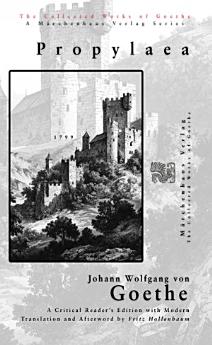Propylaea
About this ebook
The periodical’s legacy resides in its rigorous synthesis of practice and theory: it curated a pantheon of influences from Phidias to Raphael while dissecting flaws in modern art. Goethe’s editorial rigor framed aesthetics as a collaborative science, demanding that artists balance empirical observation with imaginative transcendence. Though criticized for elitism, Propyläen crystallized a moment when German art sought universality in antiquity’s shadow, making it indispensable for studying how classical revival shaped 19th-century cultural identity.
This critical reader's edition offers a modern translation of the original Fraktur manuscript (the old German script) to help curious readers delve into Goethe's works. It uses clear, contemporary language and straightforward sentences to illuminate his complex ideas. The edition includes supplementary material that provides autobiographical, historical, and linguistic context for this eighteenth-century work. This material includes an afterword by the translator that discusses Goethe’s history, impact, and intellectual legacy, as well as an index of the philosophical concepts he explored, with a focus on Romanticism and Classicism. Also included are a comprehensive chronological list of his published writings and a detailed timeline of his life, highlighting the personal relationships that profoundly influenced his philosophy.











